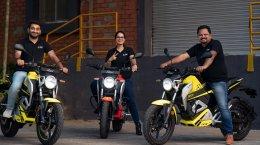Entrepreneurs I meet always have full conviction that their ventures are going to become hugely successful and path breaking. No doubt, some of them will. My challenge (and that of every VC and i-banker) is to figure out which ones are more likely than others to become very successful ventures.
Factors like quality of founders, uniqueness of the product or service, market size, unit economics, current traction, risk factors, etc., are part of the evaluation framework necessary to analyse this. But the litmus test for me is the quality of customer experience delivered; be it an early-stage, growth-stage or more mature firm.
What triggered this thought is a recent call to Ola Cabs to book a taxi. As I got dropped off at the airport, I found myself thinking that these guys are going to go places and I wish I was their investment banker or investor. My experience went something like this:
Step 1- I called Ola from my phone and booked a cab for 6 p.m.. They greeted me by name when I called them as their systems had tagged my phone number to data from previous bookings. They also told me the approximate charges for my journey.
Step 2- After hanging up, I got an SMS confirming the booking, along with the driver's name, phone number, car make, car number and a central number to call in case of queries.
Step 3- I got an SMS on the dot at 6 p.m. saying, "Your cab has arrived. Make sure you get in the next 15 minutes or waiting charges will start". This was a new step introduced since I had last used Ola and showed the thought they are putting into every step of the customer engagement cycle.
Step 4 - After getting dropped, I got an SMS with the amount billed and a message that a detailed invoice has been emailed to me.
There was transparency, convenience, efficiency and a feeling that they're in control at every step. I have used Ola's services before and the customer experience is evolving and improving all the time. Their web site, mobile app/site, call centre and the entire booking experience reflects this. What may be harder to control as they expand are aspects such as driver and car quality. However, on present evidence, it’s a good bet that they'll figure that out too. As their tag line says, Ola literally is the "easiest way to book a cab".
Now why does this mean that Ola has a high probability of becoming very successful and a market leader? Because great customer service cannot be delivered by intent alone; it requires strong operational processes and intelligent use of technology. The ability to implement the right processes and use technology to deliver better service tells me a lot about ability and vision of the founders to build a scalable, sustainable business. Moreover, this focus on continuously enhancing customer experience reflects the culture the founders are creating and therefore the quality of people they will attract to work for them. People +Processes +Technology = Great Customer Experience = Scalable, Sustainable Business.
As I started thinking about my hypothesis, others companies who established a relentless focus on customer experience very early in their life came to mind. Flipkart and Myntra both built their brands around great customer experience. Faasos, which has a chain of wrap outlets, is doing well because it is delivering on its promise of 'freshly made desi wraps delivered in super quick time'. Innovations like ordering via twitter and delivering to bus stands, train stations and airports are helping Faasos do this. E-Techies, an onsite and remote tech support service, brought transparency to laptop repairs by creating their 'repair-o-meter', an online tool to help customers get an estimate of the cost of part replacement or repair. All of these businesses are likely to becoming market leaders in their segments and have very sticky customers.
Admittedly, customer experience is easier to evaluate for consumer businesses. The same principles hold good for B2Bs, but may be harder to evaluate because of the dependency on reference checks. So the next time you're wondering whether to invest in a company or pick up a mandate, do your research on their customer experience for a few days and you may well have your answer.
Disclaimer: None of the companies mentioned above are my clients except E-Techies.
(Deepk Srinath leads the technology and emerging Sectors practice at Allegro Capital Advisors, a full service investment bank headquartered in Bangalore.)
To become a guest contributor with VCCircle, write to shrija@vccircle.com.






